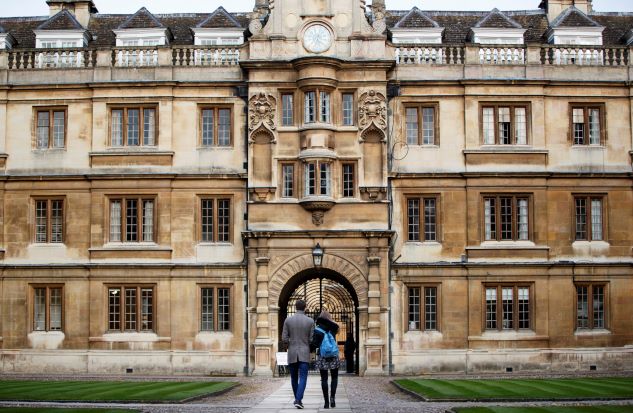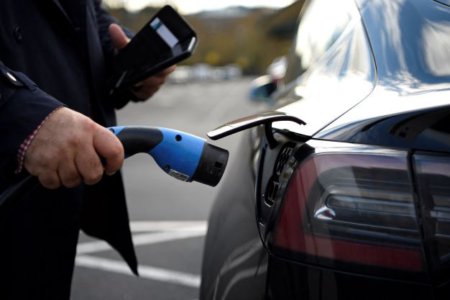
Are you a fresher about to begin your university education in the UK? You must be so excited — and nervous.
It’s okay to be nervous. Your first week at university is, after all, the most intimidating period — you need time to adjust to your surroundings, move into your dorm, make new friends and settle errands.
As such, there are probably a bunch of things on your to-do list that you need to check off. However, it’s essential to prioritise, to know what should be on the top of your list from when you arrive in the UK.
These are things that should be settled during your first week at university to avoid potential complications and issues that might arise, as well as get the most out of your university experience. Here are all the things you should do during your first week at university in the UK:

Students walk through Cambridge University in Cambridge, east of England. Source: Tolga Akmen/AFP
First week at university in the UK: What you should prioritise
1. Get a UK SIM card
Your very first step should be to register a local number, especially if you’re going to be relying on mobile data to find your way around.
There are many local mobile service providers available at UK airports. But before getting your local number from the first mobile service provider you see, it’s important to note that some towns and cities do not support good coverage for certain service providers so make sure to do some research first.
2. Pick up your BRP card
Every international student studying for more than six months in the UK will be given a Biometric Residence Permit (BRP) card — a form of ID that proves your identity, right to study and right to any public services or benefits you’re entitled to.
With a BRP card, you don’t have to carry your passport wherever you go. Most authorities would usually request you to present your BRP card.
You would have arranged your collection of BRP card during your visa application, so don’t forget to collect it when you arrive in the UK!
3. Open a bank account
This checkbox is probably the most tedious, as you’ll need to prepare several documents to open a bank account.
When choosing a bank, pick the branch closest to you for convenience and accessibility.
Here are the documents you’ll need to open a bank account:
– Your original passport
– A bank letter from your university confirming your admission and home and overseas address
– Documents such as utility bills, on-campus accommodation letter, etc. that prove your home address
– BRP card and student visa documents (some banks require these documents)
It usually takes about a week or two to get your bank account approved and your debit card ready. However, be prepared for unforeseen circumstances — according to the University of Leicester, some banks may take up to four to five weeks to approve the bank account application.
4. Register at your nearest local GP
International students studying for longer than six months in the UK have access to healthcare via the National Health Service (NHS) — a nationwide physical and mental healthcare service.
Most of the services NHS offers are free of charge for students who paid for their immigration health surcharge (470 pounds) during their student visa application.
According to the Times Higher Education, these are the free services international students have access to:
– A&E (accident and emergency) services
– NHS hospital treatment
– GP services
– Sexual health, family planning and contraceptive services
– Diagnosis and treatment of certain infectious diseases
– Treatment of any conditions caused by domestic violence or sexual violence
– Some palliative care services
– Psychiatric treatment or treatment ordered by a court
– COVID-19 tests and treatment and vaccination against COVID-19
To access the NHS services, students must register at the nearest local GP. You can also opt to register with your university’s GP if there is one. Registering with your university’s GP would be a better option as they are experienced in dealing with students and their common health conditions.

First-year students at the University of St Andrews participate in the annual Raisin Monday shaving foam fight on the Lower College Lawn in St Andrews, eastern Scotland. Source: Andy Buchanan/AFP
5. Attend freshers’ week and mixer events to make new friends
We totally get it — it isn’t easy to make new friends, and this is especially true if you’re an international student.
Many faculties organise events for freshers during the first few weeks of university. Clubs, societies and even student dorms will also be busy hosting mixer events for students, so make sure to attend them! It’s a great way to network and meet new people.
6. Be prepared to use a credit/debit/prepaid card instead of cash
For security purposes, it’s best to carry a credit/debit card instead of bulks of cash. Plus, many services, eateries and cafes at universities and select retail stores in the UK only accept cashless payments.
If your debit card isn’t ready, don’t worry — there are plenty of prepaid cards available in the UK. These cards are similar to debit/ATM cards and are easily obtainable.
Some popular brands to consider for a prepaid card include Monzo, Wise, Tesco Bank and more.










